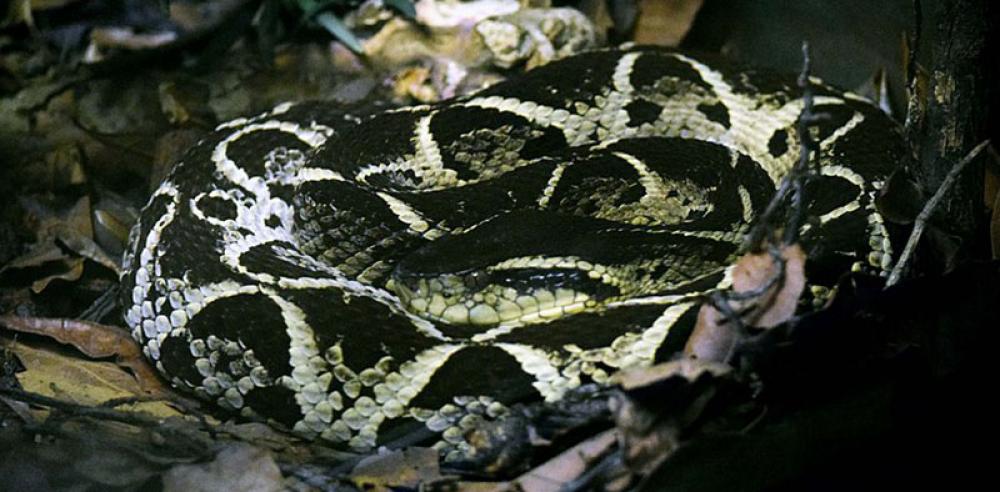Just Earth News | @justearthnews | 01 Sep 2021, 07:08 am Print

Image: Wikimedia Commons
Sao Paulo: Scientists in Brazil have found that a molecule in the venom of a type of snake can stop coronavirus reproduction in monkey cells.
This could be e a potential first step towards a drug to battle the virus causing Covid-19, according to a Reuters report.
The study has been published in the scientific journal Molecules this month.
According to the study, the molecule produced by the jararacussu pit viper inhibited the virus's ability to multiply in monkey cells by 75%, said the report.
"We were able to show this component of snake venom was able to inhibit a very important protein from the virus," said Rafael Guido, a University of Sao Paulo professor and an author of the study.
The study said that the molecule is a peptide, or chain of amino acids, that can connect to an enzyme of the coronavirus PLPro, which is key to the reproduction of the virus. This does not affect other cells, the study added.
Guido said in an interview that the peptide can be synthesized in the laboratory as it is already known for its antibacterial qualities, making it unnecessary to capture or raise the snakes, the Reuters report said.
"We're wary about people going out to hunt the jararacussu around Brazil, thinking they're going to save the world ... That's not it!" said Giuseppe Puorto, a herpetologist running the Butantan Institute's biological collection in Sao Paulo, Reuters quoted him as saying. "It's not the venom itself that will cure the coronavirus."
The researchers will now try to learn the efficiency of different doses of the molecule and if it can stop the virus from entering the cells in the first place, according to a statement from the State University of Sao Paulo(Unsep), which was also part of the research.
The researchers hope to test the substance in human cells but have not provided any timeline.
The jararacussu is one of the largest snakes in Brazil, measuring up to 6 feet (2 meters) long. Its habitat is in the coastal Atlantic Forest and also lives in Bolivia, Paraguay, and Argentina.
- New hybrid Mpox strain surfaces in UK and India — WHO sounds global alert
- Deadly weight: Obesity now responsible for 1 in 10 infection deaths worldwide
- Coffee and tea: This everyday drink may help protect your brain from dementia
- Happy Chocolate Day! The sweet secret behind chocolate’s hidden benefits
- Cambridge study finds menopause affects memory, mood, and sleep





-1763561110.jpg)
